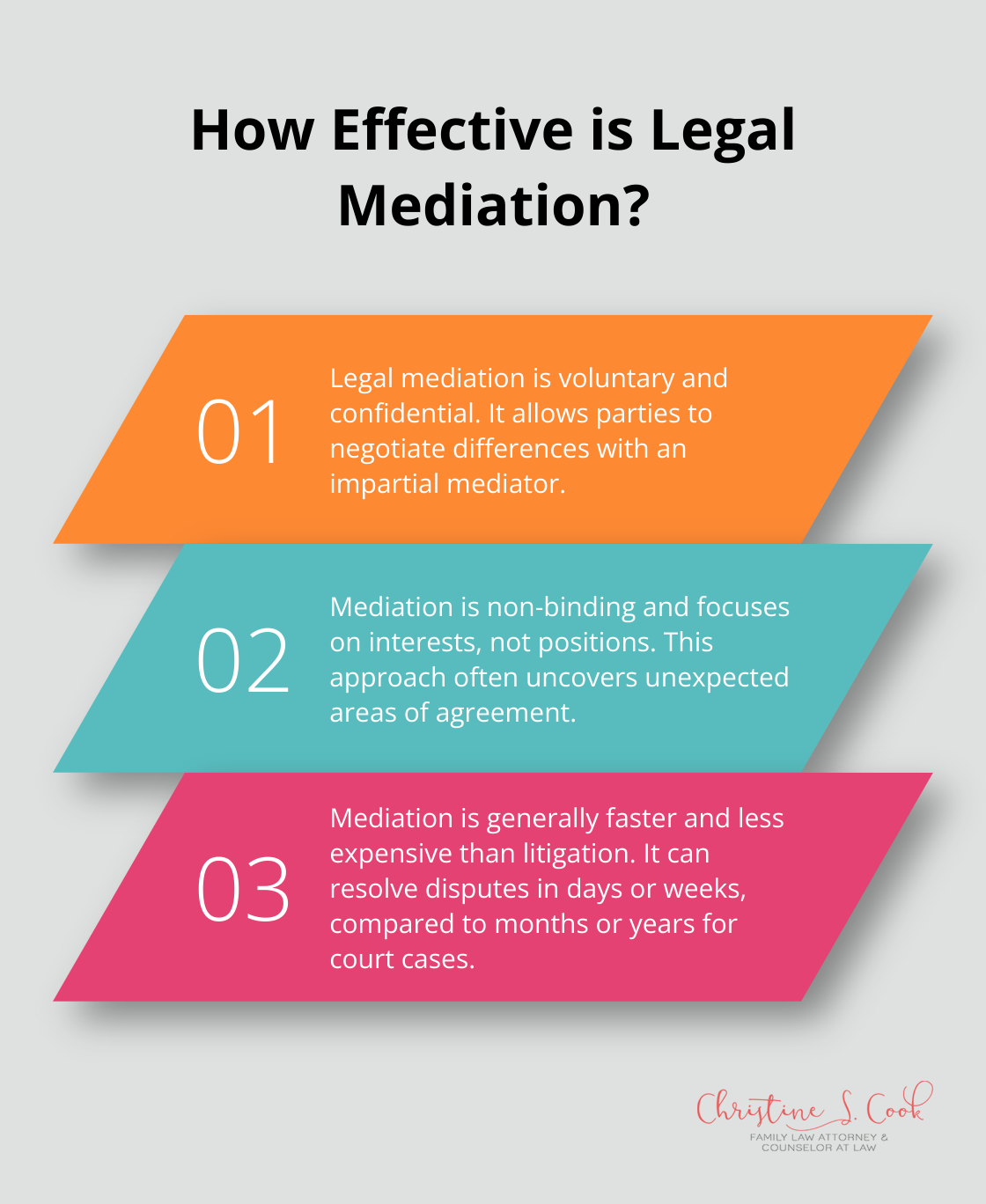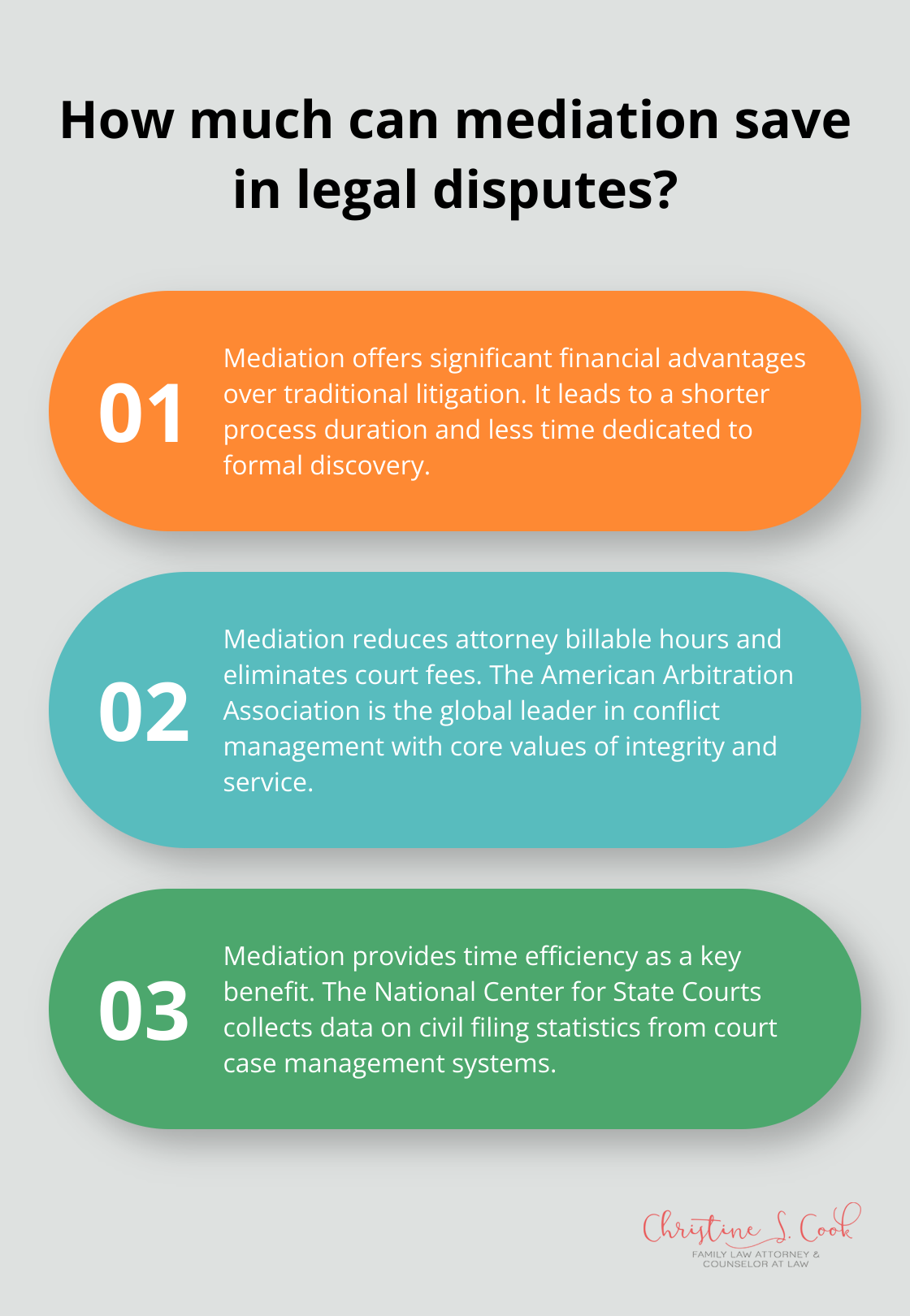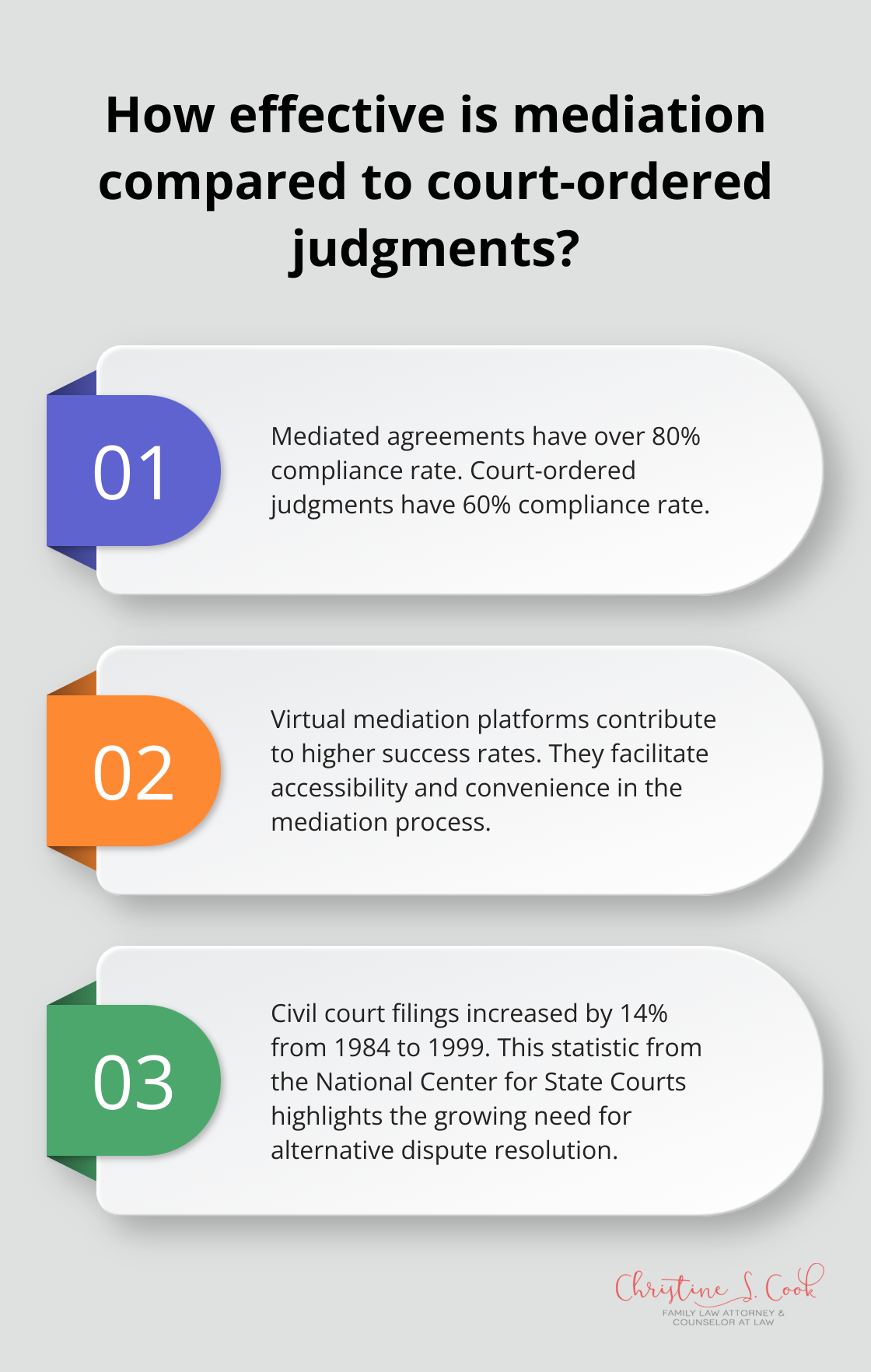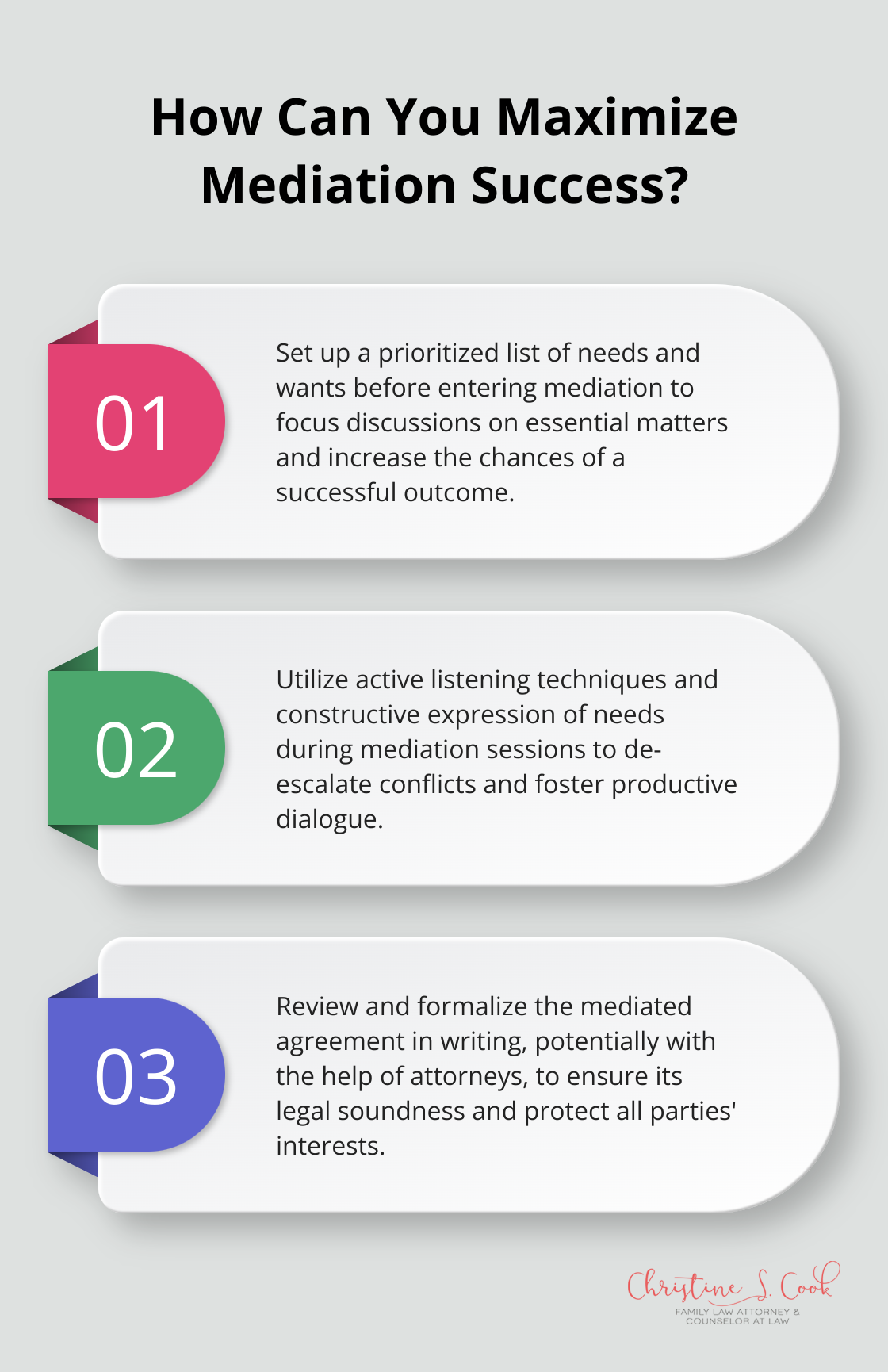At Christine Sue Cook, LLC, we often encounter clients seeking clarity on the mediation legal meaning. Mediation is a powerful tool in the legal world, offering a path to resolve disputes without the need for courtroom battles.
This blog post will explore the definition, process, and benefits of mediation in legal terms. We’ll also share insights on how this approach can save time, money, and relationships.
Legal mediation is a process wherein the parties meet with a mutually selected impartial and neutral person who assists them in the negotiation of their differences. At its core, mediation in law facilitates communication and negotiation between conflicting parties outside the courtroom.
In legal terms, mediation is:

The mediator does not make rulings or impose solutions. Instead, they guide the conversation, help parties explore options, and find common ground.
One of the most significant aspects of mediation is its flexibility. Unlike rigid court procedures, mediation allows for creative problem-solving. Parties can discuss a wide range of issues and potential solutions that might not be available in a traditional legal setting. This flexibility often results in more satisfying outcomes for all involved.
Mediation shifts the focus from arguing positions (as in court) to exploring underlying interests and needs. Positions are what mediators or negotiators start with in order to arrive at an agreement– but interests are what ultimately matter. This change in perspective often uncovers unexpected areas of agreement and paves the way for mutually beneficial solutions.
Mediation differs from other forms of dispute resolution in several key ways:
The unique characteristics of mediation make it an attractive option for many disputants. As we move forward, we will explore the specific benefits that make mediation a preferred choice for resolving legal conflicts.
Mediation offers significant financial advantages over traditional litigation. The American Arbitration Association is the global leader in conflict management with core values of integrity and service. This approach can lead to:
Time efficiency stands out as a key benefit of mediation. The National Center for State Courts collects data on civil filing statistics from court case management systems. This information helps to:
Privacy concerns often arise in legal disputes. Mediation provides a level of confidentiality that court proceedings cannot match. The American Bar Association emphasizes that all communications during mediation remain privileged and inadmissible as evidence in court. This confidentiality:
Mediation fosters a collaborative environment, unlike adversarial court proceedings. This benefit proves particularly valuable in:
Unlike rigid court procedures, mediation allows for creative problem-solving. Parties can explore a wide range of issues and potential solutions that might not surface in a traditional legal setting. This flexibility often results in more satisfying outcomes for all involved.

The unique combination of benefits offered by mediation sets it apart from traditional litigation. As we explore the mediation process in the next section, you’ll gain a deeper understanding of how these advantages translate into practical steps toward dispute resolution.
The mediation process starts with the selection of an appropriate mediator. This choice significantly impacts the outcome. We recommend mediators with expertise in your specific dispute area. For instance, family law cases benefit from mediators with child psychology backgrounds.

When you choose a mediator, examine their track record. Virtual mediation platforms are becoming commonplace, contributing to higher mediation success rates by facilitating accessibility and convenience. Ask potential mediators about their approach and success rates.
Thorough preparation leads to successful mediation. This phase includes document gathering, key issue identification, and clear objective setting. We suggest creating a prioritized list of needs and wants to focus discussions on essential matters.
The National Center for State Courts reports that between 1984 and 1999 there was a fourteen percent increase nationally in civil filings.
Mediation sessions typically begin with the mediator’s explanation of the process and ground rule establishment. Each party then presents their perspective on the dispute. The mediator facilitates discussion, helps identify common ground, and explores potential solutions.
Effective communication proves essential during these sessions. Active listening techniques and constructive expression of needs often de-escalate conflicts and foster productive dialogue.
As discussions advance, the mediator assists parties in drafting potential agreements. These drafts undergo refinement until both sides express satisfaction. Nothing becomes final until all parties agree and sign off.
Once parties reach an agreement, they formalize it in writing. Depending on the dispute nature, attorneys may need to review the agreement or submit it to a court for approval. This step ensures the agreement’s legal soundness and protects all parties’ interests.
(It’s worth noting that mediated agreements boast a compliance rate of over 80%, compared to 60% for court-ordered judgments. This higher compliance rate stems from the collaborative nature of mediation, where parties actively participate in shaping the final outcome.)
Mediation offers a powerful alternative to traditional litigation in the legal landscape. This process emphasizes collaboration over confrontation, allowing parties to work with a neutral third party to find mutually agreeable solutions. The legal meaning of mediation encompasses a voluntary, confidential approach that often leads to more satisfying and sustainable resolutions.

The advantages of mediation include significant cost savings, faster resolution times, and the preservation of relationships. Parties who choose mediation can address underlying interests rather than just legal positions, which often results in more effective outcomes. The high compliance rates for mediated agreements underscore the effectiveness of this approach in resolving disputes.
At Christine S. Cook, LLC, we specialize in guiding clients through the mediation process, particularly in family law matters. Our expertise in collaborative law techniques equips us to support you in achieving amicable settlements. We encourage you to consider mediation as an effective and efficient path to resolve your legal disputes.
